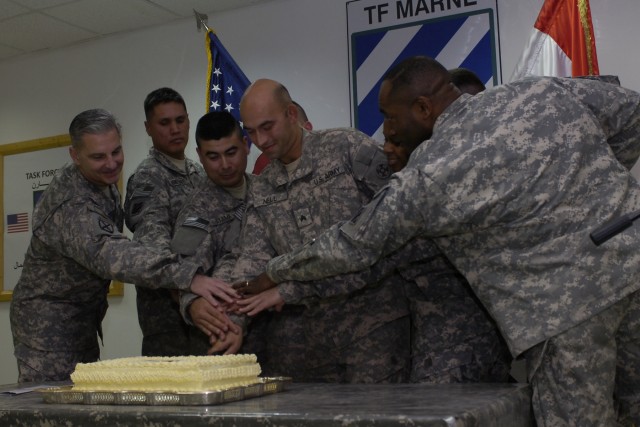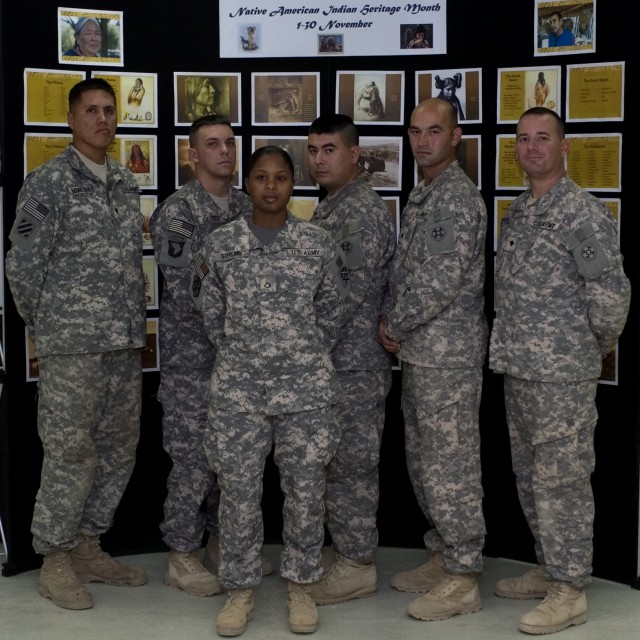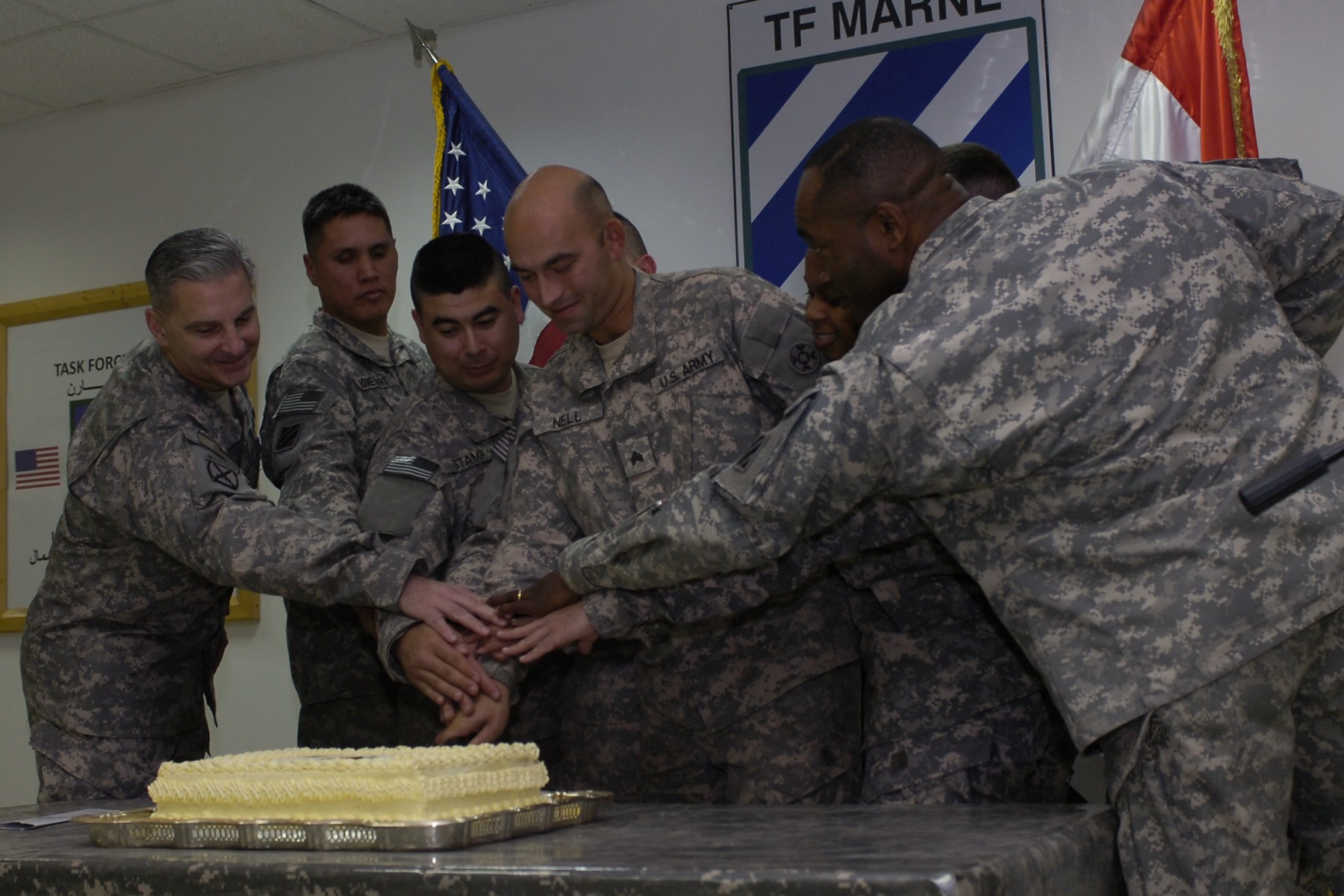CONTINGENCY OPERATING BASE SPEICHER, Iraq - They have been called the 'Vanishing Americans' and still remain perhaps one of the least understood cultures on American soil.
Nevertheless, Native Americans have played an integral part in both the defense and building of the United States.
Two Soldiers, Sgt. Albert Gentry and Spc. Drew Deck, both members of the 2025th Transportation Company, attached to 264th Combat Sustainment Support Battalion, are continuing that tradition at Contingency Operating Base Speicher, Iraq. Each brings a different perspective to his time here.
"I knew from when I was a little kid that I wanted to serve," said Gentry, who has been working on a degree in history in between three deployments to Iraq.
Gentry's grandmother was a librarian and has traced his family line back seven generations to a Revolutionary War Soldier, to Civil War participant Gen. Edmund P. Gaines and to a Cherokee ancestor. His father also fought under Gen. Douglas MacArthur in the Philippines.
Gentry's great aunt still makes her own soap in her home in the Tennessee hills. As a boy, Gentry picked up arrowheads at a nearby a creek bed where they fell during fighting between the Iroquois and Cherokee.
Gentry, of Georgiana, Ala., said looking back is important, "not to point fingers but to learn from our mistakes."
"History teaches us who we are and who the tribes are," said Gentry, adding that Native American values like 'honor' and 'courage in combat' are essential for building a strong society.
Deck agrees. As a member of the Eastern Band of the Cherokees, Deck consulted with tribal elders at council before he committed to becoming a U.S. Army Soldier-a decision not taken lightly among tribal members and never undertaken just for monetary reward.
Deck said though he also follows in the footsteps of ancestors who fought in the Civil War and uncles who served in the U.S. Navy, he was moved to join after a buddy was killed in Iraq. This is Deck's first deployment.
"I also sat down with my grandfather before I joined and talked to him about how I felt and he really encouraged me," said Deck. It was for this reason Deck urges all young people "to follow your gut instinct, follow your heart" when choosing a career path.
Both Gentry and Deck hope Native American Heritage Month will be a learning opportunity for those outside the culture, that people will be inspired to look deeper into Native American culture than what they see on television.
"I think Native Americans are still portrayed as mostly war-like," said Deck, emphasizing that this stereotype is a carryover from the Indian Wars and not the reality that many still believe to be true.
According to Gentry, this is where the importance of studying American history comes into play, revealing the significant contributions Native Americans have made in sports, literature, education, the arts and sciences as well as the U.S. military.
"It's not to lay blame," Gentry, emphasizes, "but instead to educate and remember the tribes that didn't survive the westward expansion and how much they could have added to American culture today."




Social Sharing